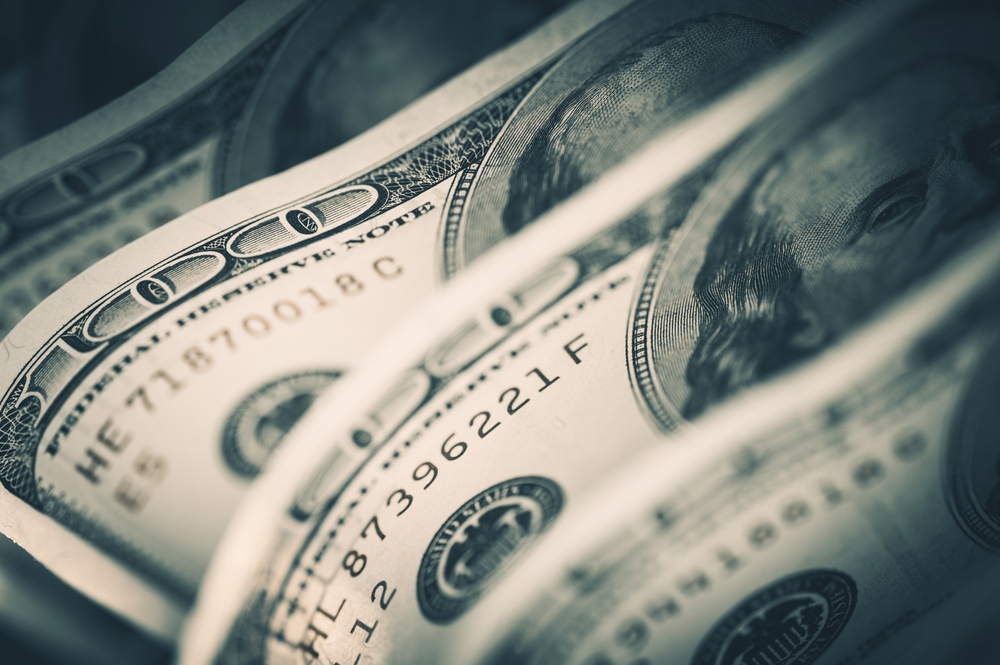bank
Report: Major Banks Laundering Trillions of Dollars For Terrorists and Drug Kingpins

A bombshell report about major western banks like JPMorgan and Deutsche Bank was released yesterday. It said that these banks allowed “trillions of dollars in suspicious transactions, enriching themselves and their shareholders while facilitating the work of terrorists, kleptocrats, and drug kingpins.”
That’s according to an investigation by BuzzFeed News, who spent more than a year compiling the FinCEN Files. They say the documents were compiled by the banks themselves and actually shared with the government. However, they mentioned that this fact was kept away from the public.
Martin Woods, a former suspicious transactions investigator for Wachovia Bank (acquired by Wells Fargo in 2008) said, “Some of these people in those crisp white shirts in their sharp suits are feeding off the tragedy of people dying all over the world.”
Incredibly, the report says a bank is immunized from prosecution. It can also continue the transaction and collect all fees. This may happen as long as a bank flags a transaction as suspicious.
“So long as a bank files a notice that it may be facilitating criminal activity, it all but immunizes itself and its executives from criminal prosecution. The suspicious activity alert effectively gives them a free pass to keep moving the money and collecting the fees.”
Banks Continue Processing Suspicious Transactions
The investigation also found that many banks continued to move money for suspected criminals. This came even after authorities prosecuted or gave banks a fine for financial misconduct.
For example, Bank of America, Citibank, JPMorgan Chase, American Express, and others processed millions of dollars in transactions for the family of Viktor Khrapunov, the former mayor of Kazakhstan’s most populous city. The transactions went on even after Interpol issued a Red Notice for his arrest.
Incredibly, the report reveals that “major financial institutions often fail to perform the most basic checks on their customers, such as verifying where a business is located when someone opens a new account. The lapses allow criminal groups to hide behind shell corporations, registered with no identifying details about their ownership, and slide the proceeds of their crimes into the global financial system.”
JPMorgan Chase allegedly collected more than $500 million in fees from Bernie Madoff while he was running his ponzi scheme. With this, the company only paid a $1.7 billion fine. The company was also supposed to improve its ability to detect money laundering. Instead, the FinCEN Files show the bank’s own investigators believed it opened accounts for “an alleged Russian organized crime figure who is known for drug trafficking and contract murders, as well as businesses tied to the repressive North Korean regime, which the US has placed off-limits.”
No High-Level Arrests
Instead of bank executives being arrested, or even closing down the offending banks, many simply agree to deferred prosecution agreements. These include fines but no high-level arrests.
Unsurprisingly, little is done should a bank not live up to its end of the agreement. “Banks often get to the end of their agreement without actually fixing the problems. Then, instead of getting the prosecution that they had been threatened with, they just get another chance. And sometimes another,” says the report.
“Since 2010, at least 18 financial institutions have received deferred prosecution agreements for anti–money laundering or sanctions violations, according to an analysis by BuzzFeed News. Of those, at least four went on to break the law again and get fined. Twice, the government responded to this kind of repeat offense by renewing the deferred prosecution agreement — the very tool that failed the first time.”
US District Judge Jed Rakoff added “Under US law, a bank that engages in money laundering can literally be forced out of business by the government, and it is kind of surprising that government hasn’t taken that step, given the obvious deterrent effect it would have.”
Paul Pelletier is a former senior Justice Department lawyer who once led the agency’s fraud unit. He says there’s only one real way to deal with the problem.
“The bankers will never learn until you start putting silver bracelets on people. Think of the message you're sending to repeat offenders.”
You can read the full FinCEN File investigation here.
Up Next:















